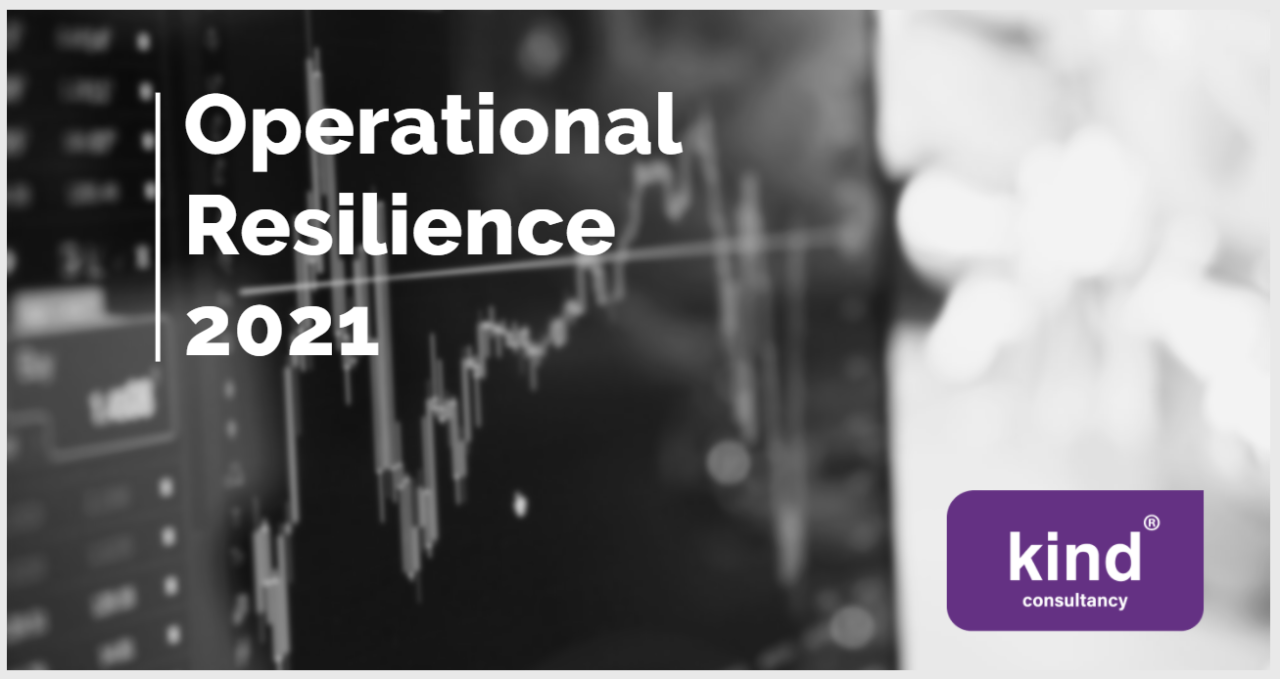Operational Resilience 2021
Last week, I hosted Virtual Roundtable discussing Operational Resilience, where we discussed what are the big issues in the Operational Resilience landscape right now and how are people across the Financial Services industry facing them?
Unavoidably, many of the biggest Operational Resilience issues that the sector is currently facing stem from the Covid-19 pandemic. When the first national lockdown came into force organisations of all sizes had to rapidly adapt as staff moved quickly to remote working, this naturally led to huge challenges on Business Continuity. Whilst some firms have stayed out of the office as much as possible since March, others have been using a hybrid approach, but it is fair to say that everyone has had to make at least some changes to how they work.
Some of the challenges faced by our roundtable contributors included situations where high speed broadband or a reliable wi-fi signal were available for some members of teams but not others. For businesses that didn’t already have laptops available for everyone, there were issues with the differences in people’s home operating systems. Where there was newly deployed video conferencing software, there were teething problems, such as server strain from the huge volume of meetings being held. These problems were tackled pragmatically– some companies distributed broadband dongles, others set up remote access systems to that staff could virtually use their office machines from home.
As organisations have begun to move from seeing remote working as a short-term measure to being part of the normal ‘business as usual’, concerns arising from the new home working set up are more complex. Many at the table had questions around security and conduct. For example: How can you be sure staff aren’t intentionally or accidentally sharing sensitive customer information? Many in the industry are thinking around conduct and culture. Positive culture can be being continually re-enforced through human interaction in our places of business. How can businesses recreate that with its remote workers?
It’s easy for us to now look at these shifts, primarily in terms of changes to systems and technological approaches, but we must also remember that these are changes happening to staff and how they work. A workforce that is functioning efficiently is a crucial part of operational resilience, and for every person that is happy to be working from home, there are others who found it more difficult. A number of firms at the event shared that they had staff asking to be back in the office as soon as possible in contrast to others who had found their teams adapted so well to working from home that they were looking at making it a permanent part of how they work going forward.
Similarly, there was agreement in discussions that it’s very important to make sure that any changes to its operation that could affect the customer, need to be looked at. Are customers happy with the new ways of working? Where some are, some are comfortable with it being only as a temporary measure. We concurred that companies need to make sure that they take the time to stop and assess the integrity of their new ways of operating from end to end, looking at any possible new risks, which could impact on their customer loyalty.
There were concerns that the focus on Covid-19 and how well companies had handled the last 12 months were now preventing other priorities and potential Operational Resilience issues being addressed, especially those relating to Brexit. It was shared that some Compliance and Audit staff have had to convince senior management to consider different potential issues, because there’s a feeling that their response to the pandemic proved they were on top of Operational Resilience issues. With many of the effects of Brexit not yet clear, a lot of our contributors wanted the time and space to plan for the possible disruptions but have, so far, had more of a “firefighting” approach, tackling new effects of Covid-19 as they’ve popped up.
What cannot be ignored, is the regulator. There is a very strong awareness across the Financial Services Industry of the regulatory focus on vulnerable customers, and this was another key area for many of our contributors. There are interlinked issues of how customers are being treated, how that treatment is being assessed and measured, and how the big picture of the businesses processes and procedures relate to these. We discussed how the amount of publicity, vulnerability is getting creates its own challenges, with customers declaring themselves vulnerable when they may not be and customers who do not think of themselves as being vulnerable and objecting to being labelled as such. Some companies have faced a slight scramble to keep up, as many customers who have previously never faced any financial hardship have since had their circumstances completely reshaped by the pandemic.
If you would like to know more on how Kind Consultancy and support your Operational Resilience programmes, please get in touch on selena@kindconsultancy.com or 01216432100.




